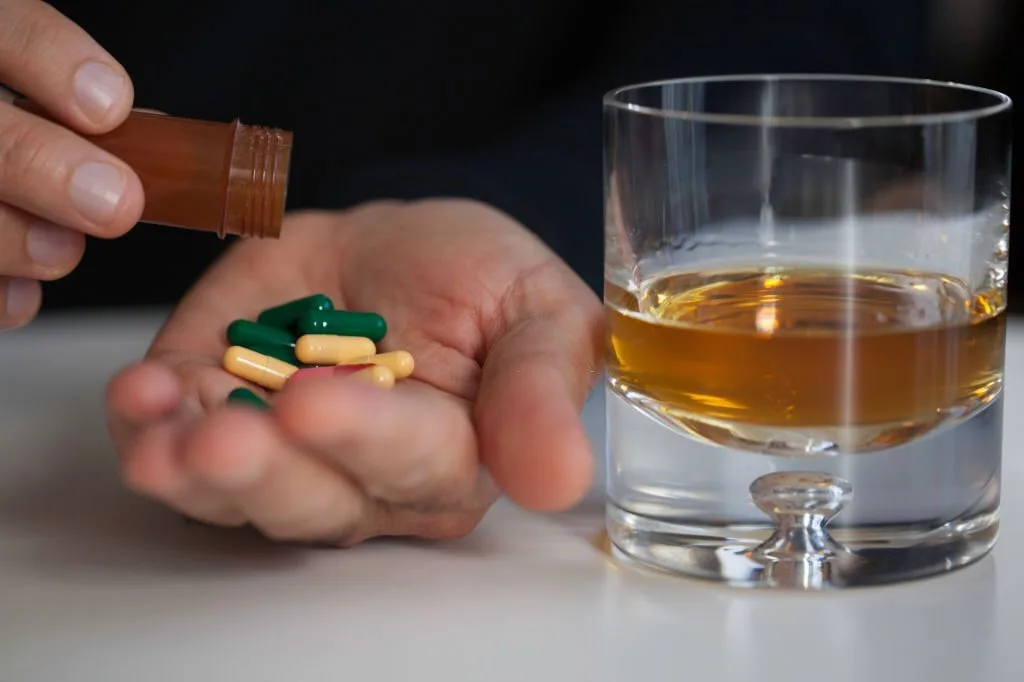Who doesn’t love a lively party with booze and beer? But the next morning, the first thing we feel is the throbbing headache where every sound is like a hammer against your skull, the upset stomach, and overall fatigue – welcome hangover.
At this moment, wouldn’t you do anything to make it stop? How about supplements – does vitamin C help hangovers?
Some studies suggest that vitamin C may help hangovers by reducing the severity and duration of hangover symptoms. Vitamin C with antioxidants may reduce oxidative stress markers with alcohol-induced liver injury. However, more research is needed to determine if vitamin C helps with hangovers.
Let’s explore the science behind vitamin C and hangovers.
The Hangover Havoc: Causes And Symptoms
A hangover is a collection of unpleasant physical and mental symptoms after heavy alcohol consumption. Yup, it’s not only dehydration; several other UNPLEASANT symptoms can accompany a hangover.
But before knowing them, let’s check what causes it.
What Causes Hangover?
Alcohol causes hangovers due to acetaldehyde damaging cells, interfering with brain activities, and disturbing body functions.
Other factors include-
- Dehydration: Alcohol is a diuretic that leads to dehydration by increasing alcohol production. It causes thirst, dizziness, and lightheadedness.
- Electrolyte imbalance: Alcohol disrupts electrolyte balance, leading to hangover symptoms.
- Congeners: Congeners in alcoholic drinks contribute to taste and smell. Darker spirit has higher levels of congeners, which may worsen hangovers.
- Sleep disruption: Drinking can interfere with brain activity during sleep, leading to sleep deprivation and possibly contributing to hangovers.
- Individual differences: Some people are more susceptible to hangovers than others, and genetics may play a role in this variability.
Hangover Symptoms
Depending on what and how much you drank, your symptoms may include-
- Fatigue
- Excessive Thirst
- Dry Mouth
- Headaches
- Muscle Aches
- Nausea, Vomiting, Dizziness
- Stomach Pain
- Poor Sleep
- Sensitivity To Light And Sound
- Concentration Difficulty
- Irritability
- Rapid Heartbeat.
Does Vitamin C Help Hangovers: What Science Says
There isn’t enough scientific evidence to support that Vitamin C can cure hangovers. Some studies suggest it may help reduce hangover symptoms, but these findings are based on small sample sizes, and many factors contribute to a hangover.
One study shows that ascorbic acid may significantly improve plasma alcohol clearance. In the study, 13 healthy males took short-term and long-term supplementation with ascorbic acid (vitamin C).
The result shows that the supplementation enhances the clearance of alcohol in the blood. While long-term supplementation had better results, the difference between short-term and long-term wasn’t significant.
According to another study, Vitamin C supplementation has been proven to ameliorate ethanol-induced hepatotoxicity in mice. However, the evidence was inconclusive on humans.
Another study suggests that consuming antioxidant vitamins before and after consuming excessive amounts of alcohol may help reduce damage to your body and brain caused by alcohol by neutralizing alcohol byproducts. However, it did not specifically test vitamin C and cannot definitively prove that it helps alleviate hangovers.
Moreover, Vitamin C can help reduce liver inflammation caused by alcohol consumption.
More research is needed to confirm vitamin C’s potential benefits for hangovers. In the meantime, a holistic approach emphasizing moderation and hydration is essential for prevention and recovery.
Check the interaction between BCAA and alcohol.

Vitamin C And Alcohol Interaction
While vitamin C may interact with alcohol in various ways, recent interest has surged regarding the link between acute alcohol intake and vitamin C deficiency. A 1986 study found that consuming up to 0.58 g ethanol/kg of body weight led to a 47% rise in urinary ascorbic acid excretion compared to non-drinkers.
Another research showed that 5g of vitamin C daily for two weeks notably improved blood alcohol clearance, hinting at vitamin C’s role in alcohol oxidation. Another study found higher alcohol clearance after vitamin C treatments.
Besides, vitamin C deficiency is common in alcohol use disorders, and alcohol consumption can decrease vitamin C levels in the body.
However, more research is needed to determine its effectiveness and safety.
Do creatine and alcohol go together?
Vitamin C For Alcohol Withdrawal
Vitamin C may benefit individuals experiencing alcohol withdrawal, but more research is needed to determine its effectiveness.
Some studies suggest vitamin C may help clear alcohol from the body and reduce acute toxic effects on the liver. Besides, vitamin C is an essential water-soluble nutrient vital in various biological processes, including enzyme reactions, hormone synthesis, and tissue structure.
However, remember that alcohol withdrawal is a severe medical condition requiring professional treatment. So, don’t take vitamin supplements without professional guidance, as it’s not a substitute for medical care.
Taking Vitamin C Before Drinking Alcohol
Taking vitamin C before drinking alcohol is generally safe for most people when consumed in moderation. A study shows that taking 2 grams of Vitamin C one hour before drinking alcohol may increase the alcohol clearance rate from the blood and reduce toxicity.
Another study suggests that taking Vitamin C before alcohol may speed up alcohol metabolism and help reduce hangover severity.
However, the evidence is limited. Also, remember that taking vitamin C does not prevent or eliminate the negative effects of drinking alcohol.
Taking Vitamin C After Drinking Alcohol
Taking Vitamin C after drinking alcohol is generally considered safe and well-tolerated. Drinking alcohol can lower vitamin C levels. Taking supplements afterward can restore them.
However, there is limited scientific evidence to support the effectiveness of Vitamin C, specifically for hangovers or reducing alcohol toxicity.
So, drink alcohol moderately and maintain a balanced diet to ensure adequate nutrient intake.
Vitamin C Hangover Prevention
The effectiveness of Vitamin C supplements in preventing or improving symptoms remains uncertain. Studies in rodents have shown that Vitamin C’s antioxidant properties may help reduce liver inflammation, but no conclusive evidence suggests this applies to humans.
Practical Tips For Hangover Cure And Relief
Here are several evidence-based strategies that can help you relieve hangover symptoms and promote recovery.
Hydration: Drinking alcohol leads to dehydration and hangover symptoms. To feel better, hydrate with water, electrolyte-rich beverages, and sports drinks to restore fluids and electrolyte balance.
Nutrition: Eating a balanced meal before drinking reduces hangover severity. Try complex carbs during a hangover to boost blood sugar levels and reduce nausea.
Rest and Sleep: Rest, rest, and rest – one of the best relief for hangovers. Sufficient rest and quality sleep can aid in hangover recovery.
No Darker-Colored Alcoholic Beverages: Avoid drinking darker alcoholic beverages – red wine, whiskey, brandy, etc., as they contain higher levels of congeners and worsen matters.
Moderation: Know your limit and drink alcohol in moderation to minimize the risk and severity of hangovers.
Antioxidant-Rich Foods: Eat antioxidant-rich foods (berries, greens, nuts, seeds) to support health and reduce alcohol’s oxidative stress.
Seeking Professional Advice: Consider professional help for severe or persistent hangover symptoms or alcohol concerns.

What Vitamin Helps With Hangovers?
Though evidence is limited, some vitamins may help with hangovers.
- Vitamin B complex
- Vitamin E
- Vitamin D
- Magnesium
- Milk thistle
FAQ
Does Zinc Help Hangovers?
Some studies suggest that zinc may help your body process alcohol better and lessen hangover symptoms. However, more research is needed to fully understand the effects of zinc on alcohol metabolism and hangovers.
What Helps Best When Hungover?
Hangovers are tough. However, some remedies like hydration, eating carbs, rest, pain relievers, etc., are some best ways to manage hangovers.
Bottom Line
Does Vitamin C help hangovers? Some studies suggest vitamin C may help hangovers, but the evidence is limited and inconclusive. So, consult a doctor before taking vitamin C for hangovers.
For more on supplements, visit our blogs.

I am a health and wellness enthusiast working in a Pittsburgh-based wellness clinic. My primary role as a consultant is to tailor a balanced lifestyle for my patients, where positive steps and potent supplements play a synergistic role.


